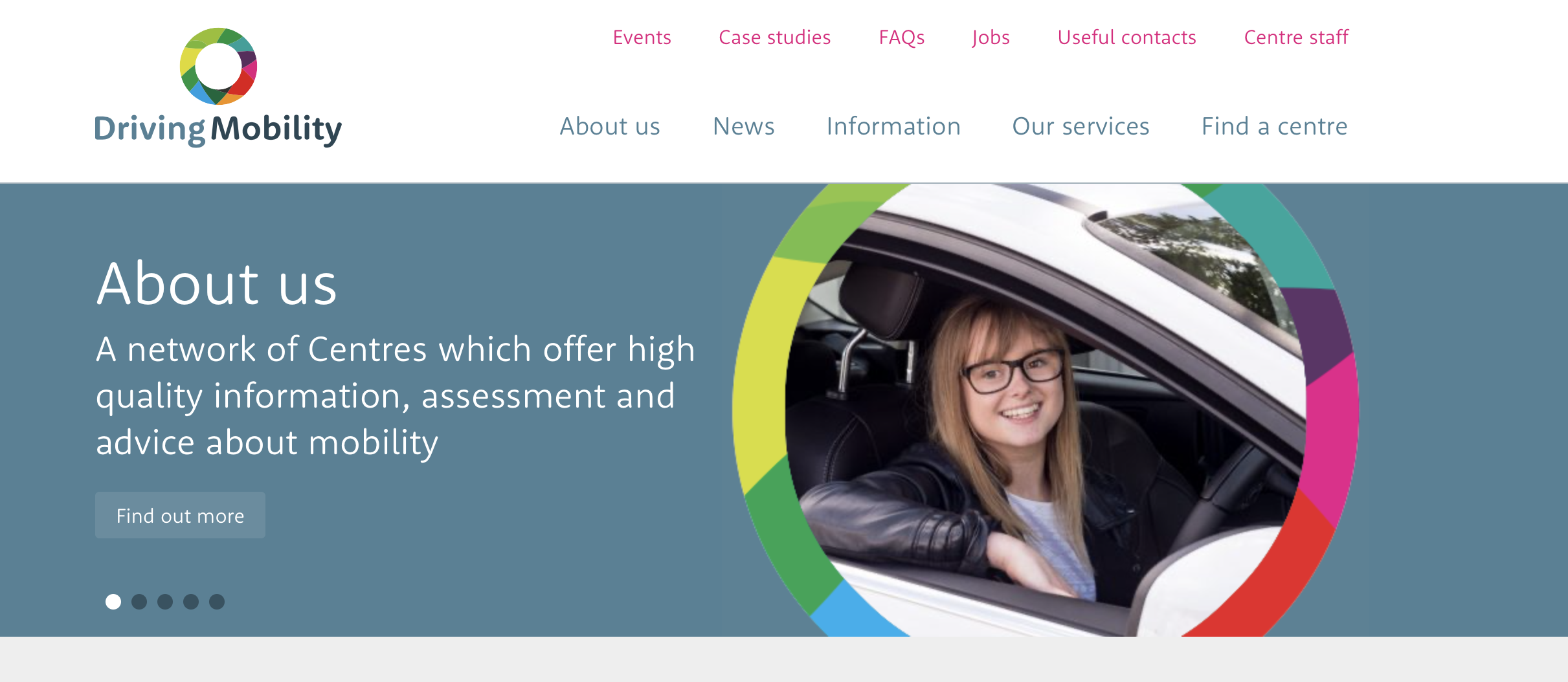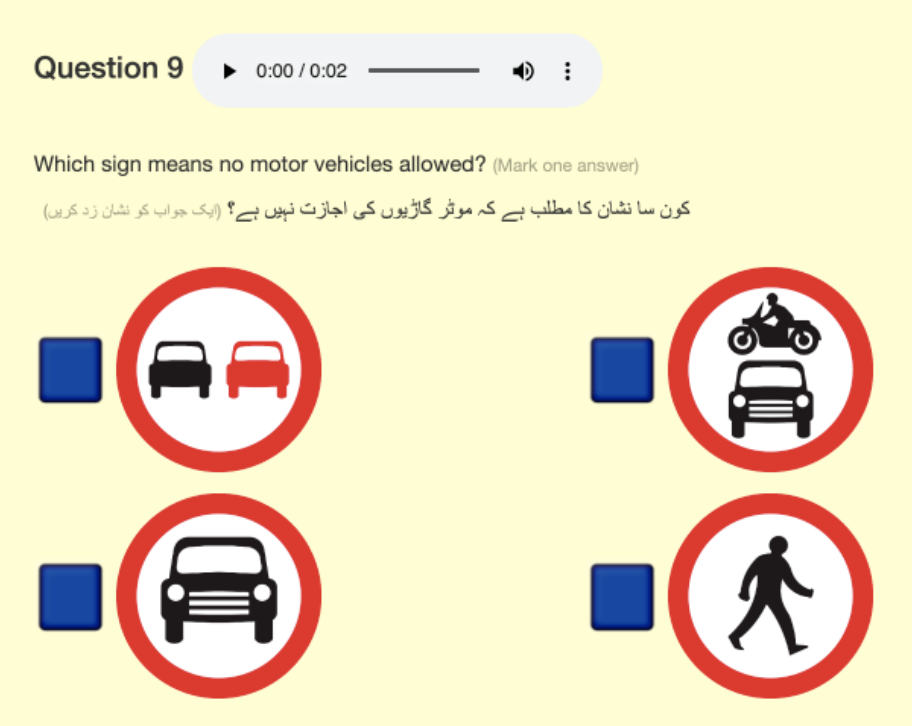Learning to drive can be a daunting prospect for anyone, but especially for people with SEN caused by conditions such as autism, dyslexia and attention deficit disorder.
It’s why Theory Test Pro has put together this blog post. It aims to help you (and your parents/guardians) understand what services and support are available – and how the learning process itself actually works.
How to assess whether a learner with SEN is able to drive
Before starting to learn to drive, an assessment may need to be carried out to secure a provisional licence for two reasons:
- To qualify for any additional help that might be required during the theory and practical driving tests (see below).
- To make sure you have the ability to operate a car safely.
The problem with point two? The Driver and Vehicle Licensing Agency’s (DVLA) own criteria can be confusing. The agency says that if a learner’s needs affect their ability to drive, it must be told.
Clarity vs. confusion
But as Disability Driving Instructors’ Haydn Jenkins points out: “Sadly, the DVLA doesn’t always make things easy and its advice isn’t always clear. For instance, its use of the “If It Affects Driving” is not useful.
“Most new learners are not in a position to answer this as they have never driven!”.
It is best to talk your GP about what – if anything – should be reported to the DVLA.
If together you believe an assessment is required, help is available. For instance, the charity Driving Mobility has centres across the UK that can assess a learner with SEN.
– Learn more about the specific categories of learning difficulties here.

How to source the right driving instructor for a learner with SEN
Once you have been cleared to start learning to drive and received your provisional licence, one of the biggest hurdle is finding a suitable driving instructor.
While there are no ‘official’ qualifications that demonstrate a specific driving instructor can work well with people with SEN, there are brilliant instructors out there – it’s just knowing where to find them:
Word of mouth: Ask for recommendations on your social networks from students with SEN (and/or their parents/guardian) who have successfully been through the process with an instructor or driving school.
Research online: Many instructors who specialise in helping those with SEN advertise online so do a search for ones working in your area. Be sure to check out their Facebook pages to see what previous students have said about them.
Go to an expert: Search for a vetted ADI in your area using the Disability Driving Instructors searchable database. Simply enter your postcode, select ‘Special Educational Needs’, and you’ll be presented with a list of all suitable instructors in your region.

“Our mission is to provide a one-stop website where people with physical, educational, cognitive and hearing impairment can find driving instructors who are both experienced and willing to go the extra mile when teaching clients with additional needs.“
– Haydn Jenkins, part of the management team at Disability Driving Instructors and also the owner of Alpha Automatic that offers specialist disability tuition. Here he is holding a Lodgesons secondary control/steering aid.
How driving instructors teach learners with SEN
Once the right instructor has been found, here’s what you can expect when learning to drive:
Before any lessons are taken, good instructors typically recommend meeting up with the learner and the parents/guardian.
“I first try to meet meet the pupil with the parents prior to the lessons starting,” says driving instructor Melvyn Ward who teaches pupils with SEN.
Melvyn also believes it’s a good idea to have a parent in the car during the first lesson: “It means the student and the parent can see how I will be communicating with them,” he explains.
“It also helps relax the pupil and lets them see that their learning experience will be relaxed and fun!”

“It’s all about managing expectations. I do not believe in wasting people’s hard earned money and I will always give them honest feedback.”
– Melvyn Ward, the owner of Awards Driving School, on why a responsible instructor will say if they feel a learner is not ready.
How driving lessons are structured to help people with SEN
You should expect a step-by-step approach that focuses on simple processes – and in some cases, repetition – that build lesson-by-lesson at a pace suited to you, not the instructor.
Driving instructor Carol Hetheringtron, who runs Driving School Wirral, which offers training for learners with SEN, explains: “Throughout the lessons, our instructors check the learner’s perception, understanding and emotional engagement. We regularly ask all learners how they feel about a task and we are trained in assessing body language, concentration and their individual triggers.
“Above all, it is important to recognise that one size does not fit all when it comes to teaching.”
Every learner is different
It’s an approach that Melvyn Ward agrees with: “Each pupil is different and parents are the best people for finding out how you need to tailor the lesson.
“Once you have met and done the initial assessment, you can then tailor the lessons to the individual. For example, I have a set of initial lessons lasting only 30 minutes if the student has a limited attention span.”
Critically, the right driving instructor ensures that if a student becomes stressed or agitated, the instructor will not exceed the pupil’s capabilities or push too hard.
“Instead, we try to challenge students while also remembering they will take longer,” says Melvyn, “and the end result is worth it as it is so rewarding for everyone involved.”

“A number of our instructors have children with varying degrees of learning challenges – my own son has dyslexia, dyspraxia and dyscalculia. We fervently believe that the ability to drive with all its advantages should be available to everyone.”
– Carol Hetheringtron, Driving School Wirral (pictured on the far right) with her team of instructors.
How the theory test supports learners with SEN
The theory test is made up two sections – multiple choice questions and hazard perception – both of which can represent a real challenge to those with SEN.
First off, it is recommended that before spending any money on lessons or securing a provisional licence, you sit down and practise the theory test in the comfort of your own home.
Melvyn Ward explains: “I have taught pupils to drive but they have been unable to pass the theory. In these cases, I stop the lessons until they have passed their theory test. I do feel that the theory test for these pupils is the most difficult part of the process.”
Helping hand
Help is at hand though as there are many ways to practise the theory test with official training materials from the Driver and Vehicle Standards Agency (DVSA) as well as apps from companies including Theory Test Pro.
These enable you to see upfront how you will get on with the theory test process before making any further financial/personal commitments to learning to drive.

How learners with SEN are supported during the theory test
If you feel confident that with practise and commitment, you can pass the theory test, support is offered by the DVSA to help you on your learning journey:
- Official training ebooks and/or apps such as the Highway Code and Know Your Traffic Signs feature voice-overs and the ‘Word Wise’ option (this displays short explanations for difficult words).
- The DVSA has been evolving the theory test so that it caters more to those with special requirements. For instance, all revision questions featured in its training books have been rewritten to make them more accessible.
- The agency also recently introduced a video clip with five questions to replace the existing written text case study. This was done to aid those with reading difficulties, learning disabilities and/or a development condition.

Other theory test support services for learners with SEN
Support services are available during the test itself – but in many cases, you will need to provide the test centre with evidence of your condition to access them:
- You can request a voice-over during the test that reads out what is on the screen in either English or Welsh.
- You can ask for a ‘reader’ (a member of staff who will read out all the text on the screen) or a ‘recorder’ (a member of staff who will record your answers to the questions during the multiple-choice section). Bear in mind a single person can take on both roles if you want.
- You can request extra time – double the usual test time – if you feel this will help you. You can also ask to take the test in a separate room from the main testing area if this will make you more comfortable.
- If you have a severe difficulties understanding language, you can take an ‘Oral Language Modified (OLM) test. This means a specially qualified person will reword the theory test questions so you can understand them more easily. Bear in mind that they are not allowed to reword technical terms such as anti-lock braking.
– For more in-depth information, access Disability Driving Instructors’ excellent breakdown and key contact information here. Also check out Theory Test Pro’s guide to taking the theory test so you know what to expect.
How the theory test could be made more accessible
While the DVSA has improved services for people with SEN, there is still room for improvement.
For instance, DDI’s Haydn Jenkins believes “the Oral Language Modification for the theory test must be made easier and quicker to arrange.
“I’ve seen OLM test taking 12 months to arrange which is unacceptable. I also believe if the reader/recorder was known to the candidate, it would be less stressful for the candidate.”
Moving mountains
Driving instructor Melvyn Ward believes the environment that you go into can be very intimidating for some: “Most pupils with special needs do not react well in foreign environments. For them, the test is like me or you climbing Mount Everest i.e., almost impossible.”
Melvyn believes that students should be allowed to take the test in more familiar surroundings.
“For instance, most autistic ADHD students I’ve taught are quite competitive in their own environments,” he says, “so can we make the test available to them where they do their normal activities?
While the DVSA does say that the theory test can be taken at home, anecdotal evidence suggests that this is an incredibly rare occurrence.
“The more normal we can make the experience for people with SEN, the better chance they will have of achieving their goals.”
– Driving instructor Melvyn Ward.
How learners with SEN are supported during the practical driving test
The big day has arrived but what processes are in place to help you? The DVSA states the examiner will:
- Allow you to write down the number plate during the eyesight test at the beginning of the test instead of having to say it out loud if you prefer.
- Discuss how you would like to do the independent driving section of the test (20 minutes where you typically drive with minimal input from the examiner). This can mean allowing you to follow road signs instead of a sat nav if you prefer and/or the examiner giving you reminders about where you’re supposed to be heading.
- Give extra information about directions if using the sat nav.
Keep test centres informed
It is important to let the test centre know that you have SEN well in advance of the test i.e., when filling in the booking form or phoning to book the test.
This will ensure extra time can be allocated before the test (for you to discuss your needs with the examiner) and during the test itself if a short break is required. That extra time doesn’t mean the actual testing itself will be any longer so don’t worry!
– Want to know more about the practical driving test and what it involves? Then head here for Theory Test Pro’s guide.
Learners with SEN: Gain your driving independence
While that may all sound like a significant challenge, do remember that many learners with SEN go on to gain their independence and become qualified drivers.
Yes, the agencies responsible for the test and driving standards still have work to do – but there is a huge amount of support, goodwill and expertise available for those of us who need extra help to get a successful result.

Best places to start on your learning-to-drive journey
Here are several useful resources that you and/or your parents/guardians can use:
Disability Driving Instructors
https://www.disabilitydrivinginstructors.com
A ‘one-stop shop’ to help people with disabilities get impartial advice and support about how to start learning to drive.
Driving Mobility
https://www.drivingmobility.org.uk
A network of centres that offer information, assessments and advice about helping those with special physical and educational needs.
‘Safe Driving for Life’ Shop
https://www.safedrivingforlife.info/shop/car
Buy books, ebooks, apps and more from an official range of products designed to help you learn to drive.
British Dyslexia Association
https://www.bdadyslexia.org.uk/advice/adults/learning-to-drive
Useful advice about learning to drive including information on lessons, the theory test and the driving test for people with dyslexia.
National Autistic Society
https://www.autism.org.uk/about/family-life/everyday-life/driving.aspx
Again, a wealth of advice for people with autism about learning to drive focusing on lessons, the theory test and the driving test.
Teens With ADHD and Driving
https://www.understood.org/en/friends-feelings/teens-tweens/risky-behavior/adhd-driving-tips
Eight great tips for helping young learners who have ADHD. While written for a US audience, the advice is still relevant to UK drivers.
How Theory Test Pro helps learners with Special Educational Needs
The Theory Test Pro app/website has been designed to help those with SEN by offering a voice-over feature as standard. Another great benefit is that instructors can closely monitor their pupil’s progress using the system. This means they can produce a detailed revision plan that is designed not to help, not overwhelm, the pupil.
- To sign up for free to Theory Test Pro, click here.
